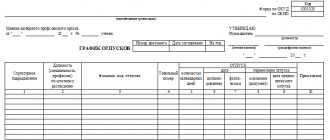Legal possibility
An individual entrepreneur is not a legal entity. An individual entrepreneur, in essence, is an ordinary citizen who has the opportunity to engage in business. His property is a single complex. All decisions are made by the citizen, and not by some management structure.
An individual entrepreneur has the right to hire third-party specialists, both under employment contracts and within the framework of civil law relations. Such persons can perform various functions, but do not have the right to manage the individual entrepreneur and its activities.
In fact, third-party specialists can be representatives of individual entrepreneurs. But they cannot be its director and perform the same functions as the director of a legal entity.
Procedure for appointment of positions
After registering an individual entrepreneur, staffing begins, if the entrepreneur himself cannot complete the entire scope of work. Positions in individual entrepreneurs are formed, as in a regular organization, when hiring employees is carried out:
- salesman;
- manager;
- manager or head of department;
- director.
Each appointment takes place in accordance with the Labor Code of the Russian Federation, where the names of professions are not fictitious, but actually exist on the territory of the Russian Federation.
Only the position of an individual entrepreneur is identified by full name. When registering, the future head of the enterprise does not give a name to the business; his last name, first name and patronymic are recorded in the register. During business activities, when it will be necessary to conclude agreements with partners or sign documents, instead of a position, he must indicate only the individual entrepreneur next to the full name.
Who can an individual entrepreneur hire?
One of the legal rights of an individual entrepreneur is to hire employees. The functions of these individuals can be completely different, even managerial.
Formally, an individual entrepreneur has the right to hire an employee for any position, even if it is not directly provided for by current regulations. The work book and contract may indicate that the person is a director. However, this will not be a director in the direct sense. In essence, such a person will be a representative, and his powers will be determined by the employment contract, other agreements and job description.
Can an individual entrepreneur appoint himself as a director of an individual entrepreneur?
A person does not have the right to appoint himself as a director of an individual entrepreneur for the following reasons:
- According to current legislation, an individual entrepreneur does not have the right to hire himself for any position. Even if an entrepreneur performs various functions, for example, selling goods, doing accounting, etc., he does not have the right to hold these positions;
- the very concept of a director of an individual entrepreneur is somewhat out of the general logic and does not correspond to the concept of a director of a legal entity. The director is presented as a managerial position with decision-making rights. An individual entrepreneur is only a citizen, and therefore makes final decisions independently.
An individual entrepreneur also does not have the right to receive wages from himself (at the same time, any employee is obliged to receive it). An entrepreneur has only profit.
Any decree appointing oneself as a director will be void. In fact, a citizen already performs all directorial functions in relation to himself. Duplication of powers does not make any sense.
Individual entrepreneur – registration of employees for management positions
Having figured out whether an individual entrepreneur is an official, it is important to find out about his ability to appoint so-called deputies (you can find out how management positions are correctly called from the Unified Classification Directory).
This can make the job much easier. Having reserved the basic rights for himself as the owner of the business, the entrepreneur shifts part of the powers to the shoulders of responsible employees.
In particular, by independently concluding transactions and making decisions on them, a businessman authorizes the manager (business manager) for secondary, but also important matters:
- hiring new employees;
- appointment of employees to positions;
- issuance and signing of orders;
- execution of powers of attorney on behalf of individual entrepreneurs;
- taking measures to reward and punish violations, etc.
The need to involve third parties in management work may be caused by difficult personal circumstances or an increase in the size of a private enterprise.
Thus, the position of an individual entrepreneur is not that, it is the status of a business owner.
And if we consider an individual entrepreneur as an organizational and legal form, then the position of the head of the individual entrepreneur is occupied by a person appointed and authorized by the entrepreneur on the basis of the following documents:
- an employment contract indicating powers;
- job description;
- powers of attorney.
The entrepreneur issues an appointment order and draws up the necessary papers. An individual entrepreneur draws up an employment contract using a standard form as a model. This agreement lists in detail the duties, responsibilities, requirements for the manager, and work schedule.
The owner independently designates what leadership positions may be in an individual entrepreneur: director (commercial or executive), chief, manager, deputy, manager, etc. The position “general director” cannot be used in relation to an individual entrepreneur.
Private business does not require a huge number of employees. Practice shows that a person of ordinary profession from the staff, but the most responsible one, is appointed to a managerial position (part-time).
But, even if the staffing table provides for the position of director, making major decisions, as a rule, remains with the business owner.
A citizen in a leadership position of a legal entity is limited in independent activity; decisions are made by constituent meetings (or the sole founder). Likewise, a private entrepreneur establishes the degree of authority of the manager at his personal discretion. In the case of an individual entrepreneur, the procedure is considered simpler, since all actions take place faster and with less paperwork.
This is interesting: Documents for insuring an apartment with a mortgage
Can an individual entrepreneur be a director of another organization?
The activities of an individual entrepreneur do not prevent him from engaging in other business, for example, within a legal entity. A citizen also has the right to conduct labor relations.
Accordingly, an individual entrepreneur can be a director of a third-party LLC. However, he will not act as an individual entrepreneur, but as a simple individual.
Many companies enter into civil law contracts with individual entrepreneurs, indicating that they are directors. This action has an obvious goal - reducing the tax base.
The bottom line is that service contract costs can be used to cut costs, but wages cannot. However, the Federal Tax Service quickly finds this trick and charges additional tax, and also applies penalties.
Read: Can an individual entrepreneur be the founder of an LLC?
What is the position of the individual entrepreneur when filling out documents - who is the director?
By registering an individual entrepreneur, a businessman remains an individual. If legal entities intend to assign a position, which will later appear in all documentation, then the question of what position the individual entrepreneur has when filling out documents remains unclear for most newly minted entrepreneurs.
What is the position of the individual entrepreneur?
First of all, when asking this question, you need to look at the documents certifying the status of an individual entrepreneur. Whether it is a seal, if any, a registration certificate or a document assigning the status of an individual entrepreneur to a citizen, the following form “Individual Entrepreneur Last Name First Name Patronymic” is indicated everywhere, and further along the entire path of the existence of his business, when filling out documents and contacting government services, the entrepreneur must simply write “IP Last Name First Name Patronymic.”
An example of how an individual entrepreneur should indicate himself in documents. Without any “Director”, “General Professor”, etc.
This form for the owner of an individual entrepreneur is his position, the name of the company, etc., etc. That is, legal practice does not imply the appointment of individual entrepreneurs to any position. He is just an individual entrepreneur, without any prefixes. Even if he holds the position of director in an individual entrepreneur, has a staff of 10 subordinates, and his business has expanded beyond the boundaries of a small store.
Some people mistakenly believe that the position of an individual entrepreneur in an individual entrepreneur should be present in documents to indicate more accurate information about his type of activity, characteristics of the company, etc.
Indeed, the indication of the position takes place in some cases, for example, when writing a characterization of an individual entrepreneur, where it is necessary to evaluate the actions of a person, his professional qualities, indicating who is in charge of the individual entrepreneur or who performs the most responsible work, but this document does not have a clear framework and regulations, so this is allowed there. In other cases, the above template is always written.
The same applies to the position of an individual entrepreneur in documents if he alone combines the duties of a director, manager, secretary, driver, courier and others. Only “IP Full Name” is indicated and that’s it.
How to write correctly when filling out documents
An entrepreneur must understand that the law prohibits individual entrepreneurs from ascribing any position to themselves.
Important! An entrepreneur cannot hire himself, appoint himself as a manager, enter into an employment contract with himself, write down his length of service, draw up job orders for himself, etc.
Also, according to the law, an individual entrepreneur does not have the right to give a name to his business. No, this does not mean a ban on attaching a sign “Products from Lyudmila” to the window of your store; we mean the design of this very “Products from Lyudmila” with the IP prefix in the documents.
That is, even if the individual entrepreneur gave the name to his business, be it a store, a service station or anything else, in documents, acts, in the bank, the entrepreneur must write “IP Full Name” and only in the column with the physical address can you indicate the city such and such, st. such and such a house. such and such, the store “Lyudmila’s Products”.
The same rule applies to filling out the SZV-M form. When filling out a certificate for the Pension Fund, you do not need to indicate what specific labor relationship the entrepreneur has with the employee. From the purpose of the document it is already clear that the employee is a subordinate of the individual entrepreneur.
Often, novice entrepreneurs are stunned when filling out the header of various applications, where there is a “To:” clause or in the contract, where it is written, for example, “IP Sorokin I.I. in the face..." In the case of an application, the individual entrepreneur simply writes “To: individual entrepreneur so-and-so”; in the contract it is written “IP Sorokin I.I., acting on the basis of certificate No. …”.
Example of an agreement with an individual entrepreneur
Translation of IP for English-language documentation
It is equally important to fill out documents when collaborating with foreign partners. In foreign legal practice, the position and status of an individual entrepreneur is absent, and job responsibilities are not indicated anywhere.
Therefore, when signing documentation with foreign partners, it is difficult for our individual entrepreneurs to immediately figure out how to correctly indicate their status or profession in the documents. In fact, as it turned out, there is no single option for filling out the contract. The main condition is to correctly convey the very meaning of your activities.
For example, if you enter “Individual businessman” into the translator, the program will produce wording such as individual entrepreneur, sole trader, sole proprietor, etc. The difference between the meaning of individual entrepreneur status and what the translator offers is huge. The same sole proprietor for the English will be perceived as a shoe dealer or shoe repairman.
Unfortunately, the legislation does not provide for rules for filling out foreign contracts. But from experience, most translation agencies for official documents write individual businessman, followed by full name and transliteration into English, and there are no problems in mutual understanding.
An example of translating organizational and legal forms of business into English
Can an individual entrepreneur have a director?
Another interesting aspect of the issue. As stated above, an individual entrepreneur cannot appoint himself as a director, and being an individual, an entrepreneur cannot appoint himself a director, that is, a person who will be above him.
But he can appoint an employee as the director of his business. A person who will represent his interests, conduct business and work on reporting. To do this, the entrepreneur issues an order that clearly states who will do what.
A simple example. An entrepreneur decides to expand his business to neighboring cities. Opening new divisions in each city, he appoints a responsible employee for them, whom he then formalizes according to documents as the director of the point. At the same time, the entrepreneur himself does not become the general director. He simply owns these points.
Important! To make life easier for the newly appointed director, the entrepreneur must issue a power of attorney for the hired worker, according to which he can conduct the activities entrusted to him instead and represent the individual entrepreneur in government agencies. That is, to act on his behalf.
If a person will not only supervise the operation of the point, but also submit reports to the tax authorities and make transactions on behalf of the individual entrepreneur, then the power of attorney, in addition to the signature and seal of the individual entrepreneur himself, will be notarized.
Sample power of attorney issued by an individual entrepreneur
The power of attorney can be issued in any order, but as can be seen from the sample, it must include the following data:
- the name of the document itself, that is, there should be the word “Power of Attorney”;
- the place where the document is drawn up (indicate the locality);
- capital effective date;
- detailed information about the entrepreneur and the authorized person;
- list of responsibilities entrusted to the authorized person;
- validity period of the power of attorney. If the validity period is not specified, the power of attorney is valid for one year from the date of entry into force;
- signatures of the parties and the seal of the individual entrepreneur, if any;
- notary certification.
Important! To ensure that tax officials do not have unnecessary questions, information about the authorized person must be filled out as accurately as possible, down to the TIN number, SNILS number, registration, etc.
When filling out any documents, be it an agreement on employment, cooperation, doing business with foreign partners, issuing a power of attorney and other documents, the individual entrepreneur does not indicate any positions he holds. Writes only “IP Last Name First Name Patronymic”. If the situation requires it, the series and number of the document according to which the entrepreneur has the status of an individual entrepreneur is additionally written.
Features of the activities of the “director” of an individual entrepreneur
The director of an individual entrepreneur is only his representative. Many people call the position exactly that, assuming that such a person will negotiate with potential clients, counterparties, make decisions provided for in the employment contract, etc.
The peculiarities of the director’s activities are that he will not be able to make decisions that contradict the contract, job description and the will of the individual entrepreneur himself. In any case, the entrepreneur himself is higher in the official hierarchy. He acts as an employer.
The director does not always have an employment relationship with the individual entrepreneur. This could also be an agency agreement. If, for example, a person is also an individual entrepreneur, an agreement for the provision of services can be concluded. However, with an individual this option is not entirely applicable. The Federal Tax Service may charge contributions if it considers that such a relationship is in fact an employment relationship.
The main features of the activities of the director of an individual entrepreneur include:
- in fact, such a person is not a director in the usual sense of the word. This is only a hired employee acting within the framework of labor relations. Less often - a person acting within the framework of civil relations (provision of services);
- in relation to the entrepreneur himself, the employee will not have authority. That is, he does not have the right to give any instructions, impose disciplinary liability, and so on;
- a person’s capabilities are limited by a contract and other documentation, in particular, a job description. A person will not be able to go beyond the limits of the concluded agreements;
- can make a number of important decisions, but the last word is always with the individual entrepreneur, since his will is limited only by current legislation;
- in fact, he is a representative of the entrepreneur. A representative may act by proxy. That is, in principle, it has the right to make some decisions, has the authority.
It would be more logical to call such a position “executive director” or something else. This will allow you to avoid misconceptions and set priorities correctly. The name will determine that the hired person does not manage the individual entrepreneur, like a director, for example, in an LLC, but is only engaged in certain executive activities.
Read: Responsibility for illegal business activities in 2020
What is the position of the individual entrepreneur in the documents - how to write correctly
Hello! In this article we will talk about the name of individual entrepreneurs in official documents.
Today you will learn:
- What rights has the state given to individual entrepreneurs?
- Is it possible for an individual entrepreneur to become an employee?
- How to hire employees correctly.
Content
What is the position of the individual entrepreneur in the documents?
When opening their own business, many people think about how to write the title of an individual entrepreneur in documents. Surely most people want to become a director. However, the law does not allow this.
An individual entrepreneur is just an employer. You cannot hire yourself, enter into an employment contract, or draw up a job description for yourself. You can only provide jobs to new people.
By contacting the tax office to obtain individual entrepreneur status, you will receive a registration certificate and a number in the special register of individual entrepreneurs (USRIP). Only your last name, first name and patronymic will appear in these documents. No individual entrepreneur position should be listed in the documents.
The law also prohibits individual entrepreneurs from coming up with a name for their business. If you decide to use a seal in your activities, then only your full name will also be displayed on it. This is the name of your company.
Now your legal status is that of an individual entrepreneur, which does not imply the assignment of any position to you.
At the same time, you have the right to hire employees in various areas, up to directors. Each of them will have their own position according to the employment contract.
What rights and responsibilities does an individual entrepreneur have?
When registering as an individual entrepreneur, a citizen has the rights of both an individual and an entrepreneur. They may differ and have similar points.
The main rights of an individual entrepreneur include:
- freedom of choice of occupation;
- use of personal savings and property for business development;
- receiving financial assistance from the state;
- creating your own stamp;
- employment of workers;
- processing of credit funds;
- state insurance;
- obtaining information about taxes free of charge and in the public domain;
- participation in government procurement;
- application of tax benefits.
Opening your own business also means expanding your range of responsibilities.
As an entrepreneur you must:
- comply with laws;
- report your own income;
- pay taxes on time;
- hire employees only officially;
- bear responsibility for the obligations incurred;
- take into account the opinions of hired personnel and business partners.
Is it possible for an individual entrepreneur to get hired?
Sometimes entrepreneurs open small businesses that do not require their active involvement. In some cases, at first the income is so small that a novice entrepreneur is interested in receiving additional income.
The state does not limit such persons’ ability to become employed in addition to their individual entrepreneur status. You can work for another company as an individual, and in your free time focus on your business activities. At the same time, you are officially employed in two places, receive two different incomes, which means you will pay double taxes.
When you get a job in another company, you receive an entry in the work book with the position you hold, a contract and a job description. Further interaction with the employer and the performance of one’s duties is based on these papers.
You can change jobs, and also quit your main job at any time and completely immerse yourself in your own business. This will not affect your legal status in any way. If you wish, you can work for several employers, in addition having your own individual entrepreneur.
We recruit staff correctly
Often the owner of a registered individual entrepreneur is the only employee of his company. This is convenient when the business is still small and additional vacancies are not required to maintain its functioning.
However, there are citizens who conduct several types of activities and do not have time to monitor the enterprise. Also, when the growth rate begins to gain momentum confidently, the owner of the individual entrepreneur thinks about support from another person.
For these purposes, you can arrange assistants for you. A prerequisite is that they must be official employees. Otherwise, you will be held accountable and punished.
To hire a new employee, you must:
- Make an entry in his employment record with a note about the position and date of admission;
- Draw up an employment contract (the position, rights and obligations of the parties, wages, probationary period if necessary, the period of validity of the agreement are stated here);
- Familiarize the employee with the job description (the main functions and responsibilities are stated, the need to fulfill indicators, etc.).
For each hired employee, you pay taxes to the budget, as well as insurance premiums at fixed rates. This must be done monthly and in full.
We are hiring a director
Typically, an individual entrepreneur hires salespeople or managers. They are necessary to control the company's supplies or sales. All management functions are performed by the owner of the individual entrepreneur himself. But sometimes the latter employs a person as a manager.
Of course, his functions are far from the executive manager of the LLC; rather, he plays the role of a department director or manager.
The need for such a position arises in a situation where the business owner has to be away often, and he needs a person who will conduct the affairs of the company on his behalf and on his behalf.
For his employment, a corresponding entry is made in the work book, a hiring order is filled out, a contract and job description are issued.
If you want the director to carry out certain tasks on behalf of the company, then you need to draw up a notarized power of attorney. Then he will become a full-fledged leader in your absence. The director’s work process is accompanied by mandatory contributions to tax and insurance funds, as required by law.











